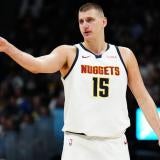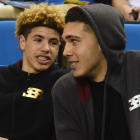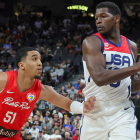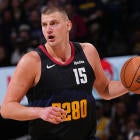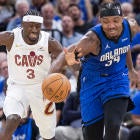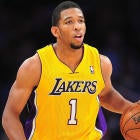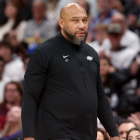Billy Baron knows what it's like in Lithuania. After starring at Canisius in college and playing for the Chicago Bulls' summer league in 2014, he spent his first year as a professional in Vilnius, playing for Lietuvos rytas. His coach there was Virginijus Seskus, who is now the coach of Vytautus Prienai, the team that signed LaMelo Ball and LiAngelo Ball on Monday. Seskus does not speak English and, because of that language barrier, an assistant coach told Baron during training camp not to expect many minutes.
Baron, who now plays for Eskisehir Basket in Turkey, drew from his experience to tell CBS Sports over email what the Ball brothers can expect from their overseas adventure. The following Q&A has been lightly edited for clarity and flow.
CBS: Where were you when you saw the Ball brothers news, and what was your initial reaction?
Billy Baron: I was actually about to fall asleep at my house in Turkey when I saw the news. Initially I laughed, and then I started to think of how it was possibly going to work.
CBS: What will you remember most from your with Rytas?
BB: It was my first year overseas when I was with Rytas and it was a big-time adjustment for me. Culture-wise, team-wise, being over there alone for 10 months. Playing overseas consists of a tough lifestyle, and there's really nothing that can prepare you for it. You just have to go through it and learn how to adjust as time goes on.
CBS: What's the thing you tell your friends about it that they have trouble believing?
BB: One of my first games there, there was a brawl in the stands that carried onto the court. My coach used to sell meat out of the trunk of his car after practice. I have faced crazier things, though, than what I saw in Lithuania, but my idea of crazy and any other overseas vet's idea of crazy is much different than a rookie's view of what crazy is.
CBS: This might sound like a silly question, but how does it even work when you're playing for a coach who can't speak English?
BB: It doesn't really work, haha. It's very tough, especially when they are trying to teach you something and you can just see how tough it is to grasp what he's trying to get across. The front office at Rytas at the time signed me, and then told the coach basically when it was official. It wasn't his choice.
CBS: Aside from the language barrier, what are the challenges of playing in Lithuania? What was your life like off the court?
BB: If I were back there now I feel as though I would enjoy Vilnius much more because I'm adjusted to being over here and my wife is with me now as well. Vilnius is a great city, my brother is there now playing for Rytas and he loves it. Prienai is much different. I could probably count on one hand how many stop lights there are. It will be an extremely simple life for them. Wake up, breakfast, go to the gym, practice, go home, eat, nap, back to the gym, practice, go home, eat, sleep, repeat.
CBS: What was the financial situation like for you? Did the checks come on time? Did you know other Americans over there who had issues with getting paid or were playing for virtually nothing?
BB: My checks were always on time. I played for a much bigger club then where they are going, and the budget was much much larger and everything was pretty professional. I don't know anyone personally who played for nothing, but it's normal to get your checks two to three weeks late. There are a few teams going through those issues there right now, but eventually you get your money.
CBS: What was the winter like?
BB: Winter is dark. You don't see the sun due to how north you are, and there's daylight from like 9 a.m. to 3 p.m. and that's it. If you don't love basketball, you won't make it through. Plain and simple.
CBS: LaMelo is a skinny 16-year-old, so the physicality of playing against adults seems like a potential problem. How physical is it over there?
BB: The leagues they will be playing in are extremely physical. Guys are not as athletic as you see in the Euroleague, or even some of the domestic leagues like mine in Turkey. So guys are great at being physical and they know how to get away with things. Also, refs let more things slide. You always have to have your head on a swivel, because those screens are no joke.
CBS: You played for a popular, successful team over there, but you played against teams like Vytautus that only have 1500-capacity arenas, right? How much variance is there in terms of the type of experience you have depending on what team you're on?
BB: When my team played anywhere, usually there was a good crowd, but for 75 percent of their games there will only be like 75-100 people there. Big difference in the atmosphere that depends on who they are playing.
CBS: The Ball thing seems like a bit of a publicity stunt, and I also I saw a Lithuanian journalist say that Vytautus, the team that signed the Ball brothers, has a guy on their roster who never plays but sponsors the team. Did you see anything weird like this when you were over there?
BB: There is a Russian guy who owned a Russian team in Volgograd -- they folded, I believe, last year -- but he used to get in the games for his team every once in a while in a meaningless game.
CBS: If you could give the Ball brothers advice about what they're in for, what would it be?
BB: My advice: Put your head down and grind. Don't look for immediate success. Your career is a marathon, learn from everything because you never know when this experience will pay dividends down the line. I went through a tough tough time there and stuck with it because it was my rookie year, I was on a good club, but also I was learning a lesson and I knew that any adversity I faced in the future, that year would help me get through it.












